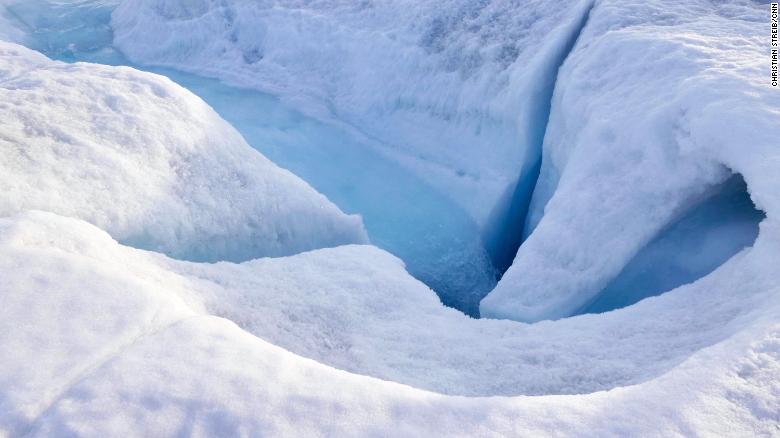Melting of Greenland's ice is 'off the charts,' study shows

A new study shows that Greenland's ice sheet is melting at an "unprecedented" rate.
Greenland's massive ice sheets contain enough water to raise global sea levels by 23 feet, and a new study shows that they are melting at a rate "unprecedented" over centuries -- and likely thousands of years.
The study, published Thursday in the scientific journal Nature, found that Greenland's ice loss accelerated rapidly in the past two decades after remaining relatively stable since the dawn of the Industrial Revolution in the mid-1800s.
Today, Greenland's ice sheets are melting at a rate 50% higher than pre-industrial levels and 33% above 20th-century levels, the scientists found.
In the wake of October's dire report from the UN Intergovernmental Panel on Climate Change warning that civilization has just more than a decade to stave off climate catastrophe, Thursday's report spells more bad news for the planet, especially the millions of people living near the world's oceans.
Melting from Greenland's ice sheet is the largest single driver of global sea level rise, which scientists predict could swamp coastal cities and settlements in the coming decades.
Eight of the 10 largest cities in the world are near coasts, and 40% to 50% of the global population lives in coastal areas vulnerable to rising seas.
The study also found that Greenland's ice loss is driven primarily by warmer summer air and that even small rises in temperature can trigger exponential increases in the ice's melt rate.
"As the atmosphere continues to warm, melting will outpace that warming and continue to accelerate," said Luke Trusel, an assistant professor at Rowan University and study co-author.
According to Trusel, the current thought in the scientific community is that there is a temperature threshold that could trigger a point of no return for the eventual melting of Greenland and Antarctica's ice sheets. And though we don't know exactly what that temperature tipping point is, "what's clear is that the more we warm, the more ice melts."
"Once the ice sheets reach these tipping points, it's thought that they'll go into a state of irreversible retreat, so they'll be responding to what we do now for centuries and milliennia into the future," Trusel said.
